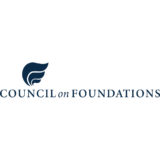COVID-19 Legislative Update
Posted on April 1, 2020 by Stephanie Powers

Editor’s note: This article was originally published by the Council on Foundations and re-posted here with permission. For more legislative resources, visit the Council’s website. Congress Passes $2 Trillion COVID-19 Bill The Coronavirus Aid, Relief, and Economic Security Act (CARES) Act—H.R. 748 (116)—was passed by the House and signed by President Trump today. The $2 trillion relief package will provide… Read More








